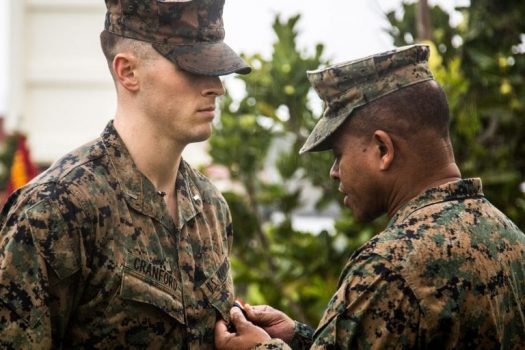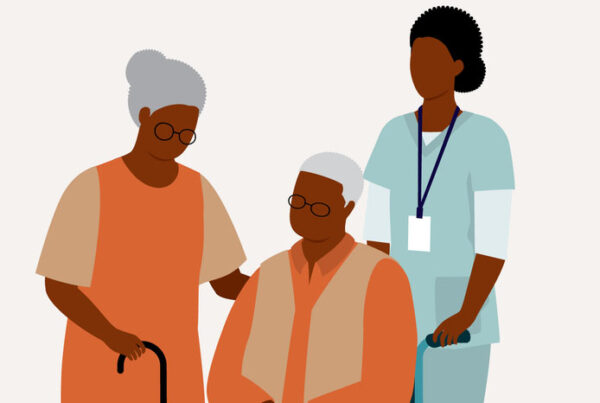By: David Lee Sexton, Jr.

Photo by: Lance Cpl. Josue Marquez, CC0
What is Cultural Competence?
Cultural competence can be described as one’s best tool in working with culturally diverse groups (Alizadeh and Chavan, 2015). However, the exact definition of this construct and the components which make it up is not singularly defined. What is more well-known is the problematic nature of the increasing demand for healthcare to meet the needs of an increasingly diverse culture (Alizadeh and Chavan, 2015). Kirmayer (2012) indicates that cultural diversity is especially challenging to mental health service, as one’s culture influences individuals’ experiences and, ultimately, outcomes associated with treatment. In other words, treatment experiences are often affected by cultural domains, such as religion, language, and various other aspects of one’s identity. Thus, cultural competence, despite various operationalization within the literature, seeks to improve accessibility and effectiveness of mental health services to culturally diverse populations.
Recognizing the Gaps
One of the most important aspects of cultural competence is awareness of cultural aspects that can create gaps between provider and client. Often times, individuals may not acknowledge factors, such as race, gender, or age, that immediately create a divide within the counseling relationship. It is obviously important to recognize these potential gaps in order to achieve any kind of competence in working with diverse cultures. Dr. Tammi Dice, Assistant Chair in the Counseling and Human Services Department at Old Dominion University and Program Director for Human Services insightfully indicates the importance of striving “to be culturally humble, not culturally competent” (Dice and Dice, 2017). Dr. Dice and her husband, Tony Dice, first year Ph.D. student at Old Dominion University, focus on developing cultural alertness in promoting access to effective mental health treatment for marginalized populations.
Gaps Related to Military Culture
One such gap can be caused by differences between military service members and civilians. According to Atuel and Castro (2018) the military, described as a “warrior culture”, can be represented as a three-factor structure: a formal organization, a cultural group, and a social group. This means that individuals must be aware of several factors that influence service member culture, such as importance of chain of command, military cultural norms, and military identity. Thus, it can be difficult for civilian providers to work with service members if they lack knowledge of military culture (Atuel and Castro, 2018).
How Can Providers Foster Military Cultural Competence?
Dice and Dice (2017) stress the importance of becoming aware of the challenges one may face when working with culturally diverse others, such as service members. Furthermore, they point out the difficulties of working with clients who may have multiple marginalized identities. Thus, they offer insights into gaining awareness of culturally diverse populations and awareness of oneself in order to guide interactions. Reger, Etherage, Reger, and Gahm (2008) also offer several strategies for developing military cultural competence. These include exposing oneself to military culture, training in military regulations, and partnering with providers who are more experienced with military culture.
Further Resources
Join the OneOp Family Development team on May 24th at 11:00 am Eastern for a free, 90-minute webinar examining the relationship between self-awareness, knowledge of others, and culturally alert interventions. The facilitators, Tammi Dice, Ph.D., HSBCP and Tony Dice, M.S.Ed., CSAC, will challenge the participants to recognize the influence of intersecting identities on themselves and their clients and introduce strategies for gaining self and other awareness, including the RESPECT Model and Broaching. The facilitators will also provide participants with strategies to address powerlessness among clients who are marginalized and ways to engage in advocacy.
If it’s too late for you to join us in person, don’t despair! Our webinars are recorded for viewing at any time on our website, as well as YouTube, and CEUs are available for one year after the live event!
The Family Development team aims to support the development of professionals working with military families. Find out more about OneOp Family Development concentration on our website, Facebook, and Twitter.
References
Alizadeh, S., & Chavan, M. (2016). Cultural competence dimensions and outcomes: A systematic review of the literature. Health & Social Care in the Community, 24(6), e117-e130. doi:10.1111/hsc.12293Atuel, H. R., & Castro, C. A. (2018). Military cultural competence. Clinical Social Work Journal, doi:10.1007/s10615-018-0651-z
Dice, T & Dice, R. (2017, September 23). Culturally sensitive communication: Strategies to Enhance Helping Relationships [Webinar]. Retrieved from: https://www.youtube.com/watch?v=kWdihaAWnxk
Reger, M., Etherage, J., Reger, G., & Gahm, G. (2008). Civilian psychologists in an army culture: The ethical challenge of cultural competence. Military Psychology (Taylor & Francis Ltd), 20(1), 21-35.
Kirmayer, L. J. (2012). Rethinking cultural competence. Transcultural Psychiatry, 49(2), 149. doi:10.1177/1363461512444673












